
Does massaging your face cause more wrinkles?
Share
The topic of face massage often stirs up some heated debates. You might have heard conflicting opinions, with some claiming that massaging your face can lead to more wrinkles, while others swear by its benefits. Let’s dive in and debunk some of the most common myths about face massage while incorporating additional insights into the science behind skin ageing.
Listen to this blog as a podcast here.

Myth 1: Face massage stretches the skin, causing it to lose elasticity and develop wrinkles faster.
It’s understandable to worry that stretching the delicate skin on your face could accelerate the formation of wrinkles. However, when done correctly, face massage can actually improve skin elasticity and firmness over time. Here’s why:
-
Improved Circulation: Gentle massage techniques stimulate blood flow to the skin, delivering essential nutrients and oxygen while removing toxins. This increased circulation promotes collagen production, the protein responsible for maintaining skin’s elasticity and suppleness.
-
Muscle Relaxation: Tension in facial muscles contributes to the formation of wrinkles and fine lines. Massaging your face helps to relax these muscles, reducing the appearance of existing wrinkles and preventing new ones from forming.
-
Lymphatic Drainage: Face massage can also promote lymphatic drainage, helping to reduce puffiness and eliminate toxins that can contribute to skin aging. By encouraging the natural detoxification process, you can achieve a more radiant and youthful complexion.

Myth 2: Pulling and tugging on the skin during massage can lead to sagging and drooping.
It’s crucial to approach face massage with care and gentleness to avoid causing unnecessary pulling or tugging on the skin. When performed correctly, face massage should feel soothing and relaxing, rather than harsh or abrasive. Here’s how to ensure you’re reaping the benefits without risking sagging skin:
-
Use Proper Technique: Choose massage techniques that focus on gentle, upward motions to lift and firm the skin, rather than pulling it downwards. Avoid excessive pressure or pulling, especially around delicate areas like the eyes. Learn how to gua sha at home here.
-
Use A Lubricant: Applying a nourishing facial oil before massage can help reduce friction and allow your hands to glide smoothly over the skin. This minimises the risk of pulling or stretching the skin excessively.
-
Invest in Quality Tools: Using tools like gua sha stones or facial rollers can enhance the effectiveness of your massage while minimising the risk of skin damage. Always clean your tools thoroughly before use.
Myth 3: Massaging the face can exacerbate existing skin conditions like acne or rosacea.
While it’s true that certain massage techniques may not be suitable for all skin types, there are ways to enjoy the benefits of face massage without aggravating existing skin conditions. Here’s how to tailor your massage routine to accommodate sensitive or acne-prone skin:
-
Choose the Right Products: Opt for lightweight, non-comedogenic oils or serums that won’t clog pores or exacerbate acne. Look for ingredients like tea tree oil or niacinamide, known for their soothing and anti-inflammatory properties.
-
Be Gentle: If you have sensitive or reactive skin, stick to gentle massage techniques and avoid applying too much pressure. Listen to your skin and adjust your routine accordingly, skipping massage on days when your skin feels particularly irritated. Avoid areas where your skin is inflamed or flared-up and concentrate on massaging your chest, neck and scalp, for instance.
-
Consult a Professional: If you’re unsure about incorporating face massage into your skincare routine, consider consulting a dermatologist or licensed aesthetician for personalised advice. They can recommend techniques and products tailored to your specific skin concerns. Book free skin consultation with Jenny here.

The Science Behind Face Massage
Let's talks about the structure of the skin and and explore further why massaging the skin is so beneficial.
Fibroblasts are a type of cell found in connective tissue throughout the body, including the skin. They play a crucial role in maintaining the structural integrity and function of the extracellular matrix (ECM), which is the complex network of molecules that provides support and structure to tissues.
These specialised cells are responsible for producing and secreting various components of the ECM, including collagen, elastin, and other proteins. Collagen is the most abundant protein in the human body and is essential for providing strength and elasticity to tissues, including the skin. Elastin, on the other hand, contributes to the elasticity and resilience of tissues, allowing them to stretch and recoil.
Fibroblasts also produce the ground substance of the ECM, which acts as a lubricant between tissue layers and facilitates the movement of cells within the connective tissue. This ground substance is composed of molecules such as glycosaminoglycans (GAGs) and proteoglycans, which help maintain tissue hydration and regulate the flow of nutrients and waste products.
One of the key functions of fibroblasts is to respond to mechanical signals and cues from their surrounding environment. Mechanical tension, such as stretching or compression of the tissue, plays a crucial role in regulating the activity of fibroblasts. When subjected to mechanical tension, fibroblasts become activated and increase their production of collagen and other ECM components, contributing to tissue repair and remodelling.
Overall, fibroblasts are essential for maintaining the structural integrity, elasticity, and function of the skin and other connective tissues. Their ability to respond to mechanical signals underscores the importance of practices like facial massage in promoting skin health and vitality by stimulating fibroblast activity and collagen production.
The Take-Away: Why massaging your skin is important?
Ultimately, the practice of face massage extends beyond addressing wrinkles and sagging skin; it encompasses the overall well-being of the tissues. By incorporating mindful massage techniques into your skincare routine, you not only support the physical health of your skin but also address emotional tension and stress, embodying the essence of holistic skincare.
Listen this blog as a podcast here.
Love, Jenny
the founder of Jenny Nordic Skincare, accredited gua sha trainer, holistic beauty therapist and organic skincare formulator
Please join my community of like-minded, strong and beautiful women - or follow me on Instagram!

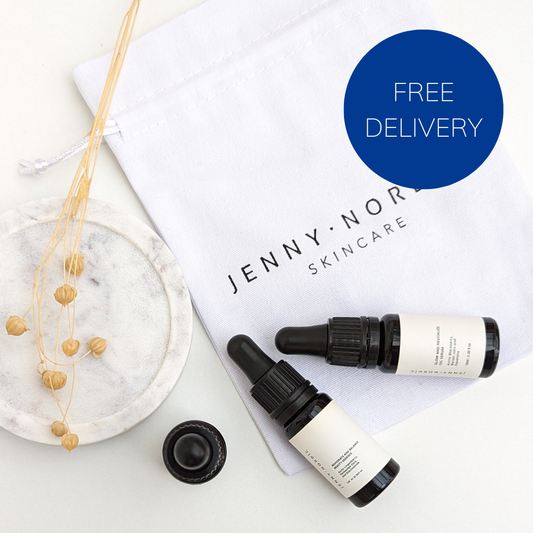
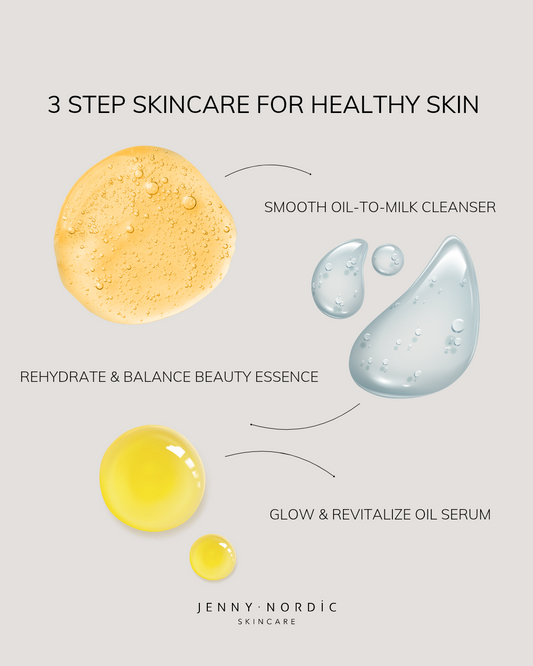
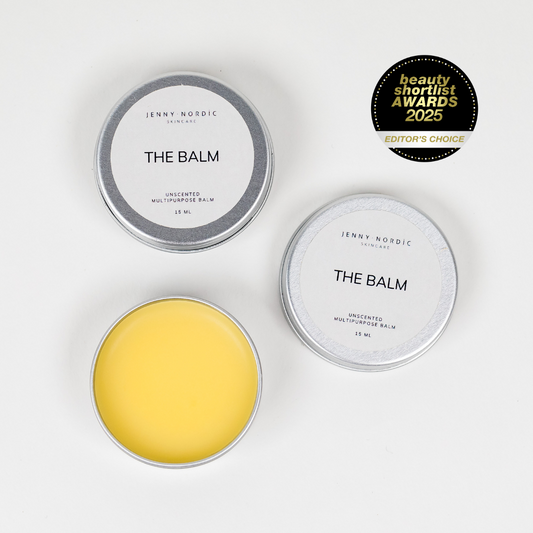
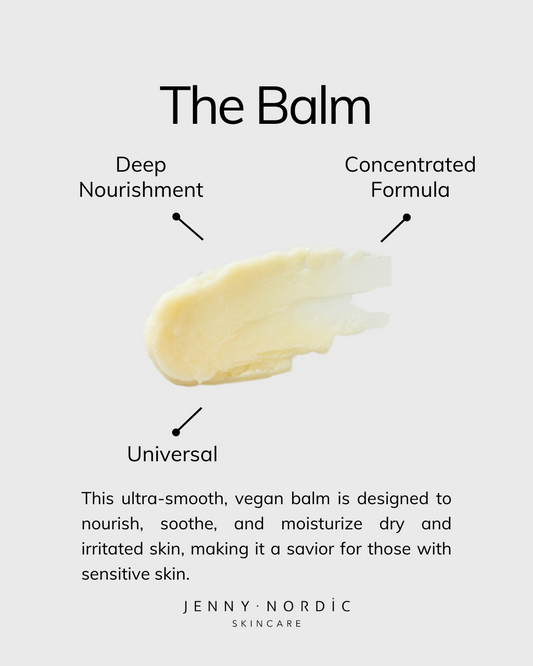
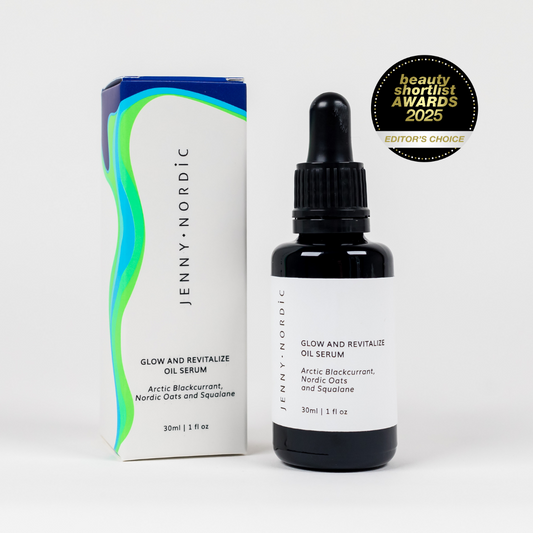
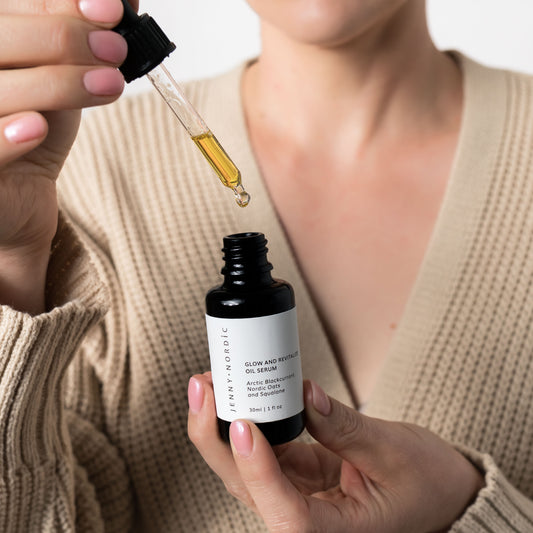
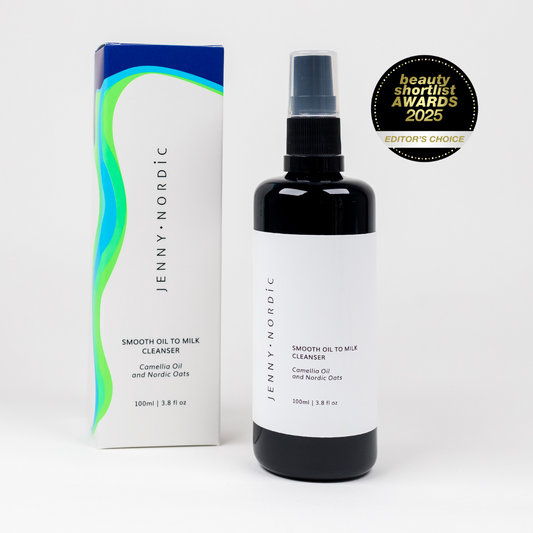
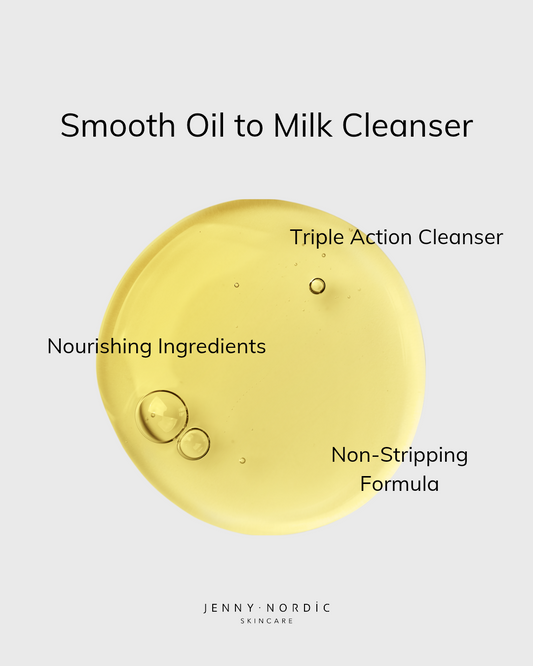

1 comment
Akho ke bich main lmain lain agyi mere massege krne se